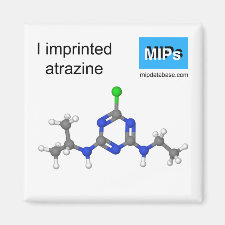
Authors: Turiel E, Díaz-Álvarez M, Martín-Esteban A
Article Title: Surface modified-magnetic nanoparticles by molecular imprinting for the dispersive solid-phase extraction of triazines from environmental waters.
Publication date: 2020
Journal: Journal of Separation Science
Volume: 43
Issue: (16)
Page numbers: 3304-3314.
DOI: 10.1002/jssc.202000230
Abstract: Magnetic nanoparticles have been surface modified by molecular imprinting and evaluated as selective sorbents for the extraction of triazines from environmental waters. The use of propazine as template allowed us to synthesize a selective material able to simultaneously recognize and selective extract not only the template but also several other herbicides of the same family. A magnetic molecularly imprinted-based dispersive solid-phase extraction procedure was developed and fully optimized. Magnetic molecularly imprinted polymer particles can be easily collected and separated from liquid solvents and samples with the help of an external magnetic field, avoiding in that way any centrifugation or filtration steps, which represents a remarkable advantage over traditional procedures. Under optimum conditions, selective extraction of several triazines (cyanazine, simazine, atrazine, propazine, and terbutylazine) from environmental water samples was performed prior to final determination by high-performance liquid chromatography with diode-array detection. Recoveries for the studied triazines were within the range of 75.2-94.1%, with relative standard deviations lower than 11.3% (n = 3). The limits of detection were within 0.16-0.51 μg/L, depending upon the triazine and the type of sample analyzed
Template and target information: triazines, cyanazine, simazine, atrazine, propazine, terbutylazine
Author keywords: Environmental waters, magnetic nanoparticles, molecular imprinting, Solid-phase extraction, triazines



Join the Society for Molecular Imprinting

New items RSS feed
Sign-up for e-mail updates:
Choose between receiving an occasional newsletter or more frequent e-mail alerts.
Click here to go to the sign-up page.
Is your name elemental or peptidic? Enter your name and find out by clicking either of the buttons below!
Other products you may like:
 MIPdatabase
MIPdatabase









